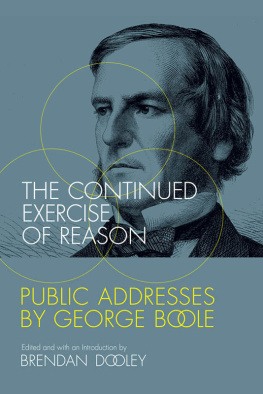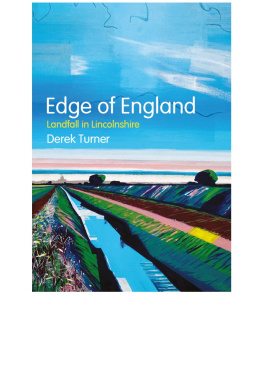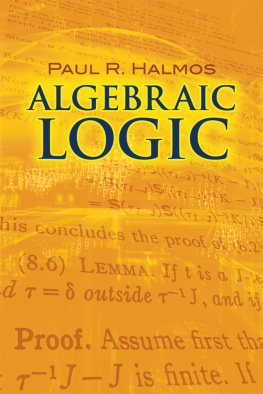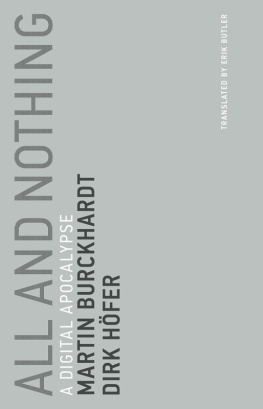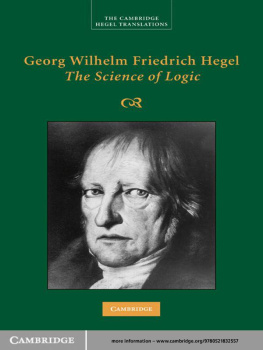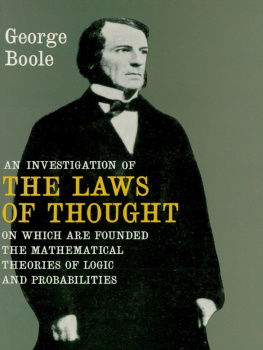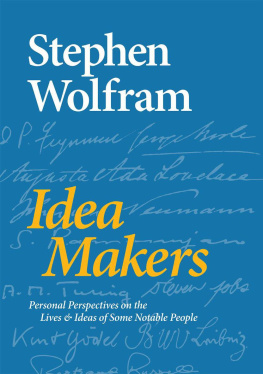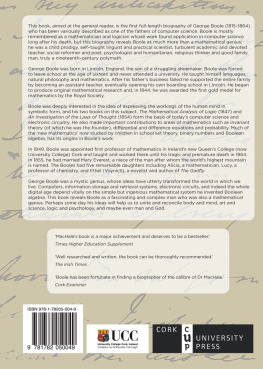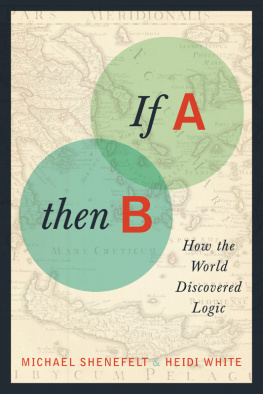The Continued Exercise of Reason
Public Addresses by George Boole
edited and with an introduction by
Brendan Dooley
The MIT Press
Cambridge, Massachusetts
London, England
2018 Massachusetts Institute of Technology
All rights reserved. No part of this book may be reproduced in any form by any electronic or mechanical means (including photocopying, recording, or information storage and retrieval) without permission in writing from the publisher.
This book was set in Bembo Std by Toppan Best-set Premedia Limited. Printed and bound in the United States of America.
Library of Congress Cataloging-in-Publication Data
Names: Boole, George, 1815-1864, author. | Dooley, Brendan Maurice, 1953- editor.
Title: The continued exercise of reason : public addresses by George Boole / edited and with an introduction by Brendan Dooley.
Description: Cambridge, MA : The MIT Press, [2018] | Includes bibliographical references and index.
Identifiers: LCCN 2017032612 | ISBN 9780262535007 (pbk. : alk. paper)
eISBN 9780262345569
Subjects: LCSH: Boole, George, 1815-1864. | Logic, Symbolic and mathematical.
Classification: LCC QA9.2 .B657 2018 | DDC 511.3--dc23 LC record available at https://lccn.loc.gov/2017032612
ePub Version 1.0
Preface
Alexander Wheelock Thayer introduces an exhaustive life of Beethoven by remarking, There is but one road to excellence, even for the genius of a Handel or a Mozartunremitted application. Yet where does this road pass? Through a place? A time? Trying to understand a great thinker from long ago involves the researcher in a curious conundrum. We seem to know the conclusionthe published work, the famous insightsbut what are the premises? George Boole received the Royal Societys first-ever gold medal in mathematics in the year 1844, and his crowning achievement, The Laws of Thought, published ten years later, stands as a monument of mathematical thinking. What clues are left about how those accomplishments occurred? We have a myriad of private papers scattered here and there between Britain and Ireland. If possession of an exceptional mind is not enough, what were the necessary or sufficient conditions that made the work a possibility?
In advance of a comprehensive biography that someone may someday write, this book introduces the figure of George Boole by perhaps the next-easiest approach: through his own words. Bicentenary celebrations such as in the recent Boole Year (2015) often seem to allow the present to overwhelm the past. Publishing these texts will hopefully steer some of the interest back to the man himself. In fact, the closer we look, the more material his writings seem to offer for reflection by a wide variety of readers, including those whose chief interests may lie in the histories of science, culture, religions, education, and even freedom. Partly due to the nature of the occasions for which these texts were written, mathematicsBooles recognized area of competencetakes a back seat here, yet the reader will find that everything in one way or another relates to the laws of thought.
The Boole we are coming to know was not simply a polymath but also an intellect of surprising originality in numerous fields of knowledgeindeed, an intellect keenly interested in how those fields fit together, and how they might contribute to the grand project of human engagement with the real and the ideal, the sacred and the profane, the good and the contrary. Investigators into any question, in his view, must attend to the operations of logical abstraction that characterized all thought processes. Everywhere patterns aboundof behavior, expression, belief, experience, memorywhich must be sought out and made to reveal the structures underneath, even the laws, applying not only to the bodies in the universe and the things on earth but the human story too. In the effort to reach a deeper understanding, Booles answers are sometimes surprising, sometimes prescient, sometimes disconcerting; they are illustrated in the pages below.
Although this collection does not refer to the history of mathematics per se, the editor was drawn to the subject by curiosity about the tension between what appear to be two poles of methodological reflection: science and humanities. In the early nineteenth century, that opposition was far less clearly drawn than now, although at the time of this writing there are conciliatory movements afoot on both sides of the two cultures divide famously delineated by C. P. Snow in 1959, and not only because of the twilight of positivism. Themes of methodological cross-fertilization have come up in the work of Robert K. Merton and a host of others, but perhaps nowhere quite so explicitly as in Edward O. Wilsons Consilience (1998), which argues that knowledge can be united by a continuous skein of cause-and-effect explanation and across levels of increasingly complex organizationa concept robust enough to serve as the framework for a conference held at the New York Academy of Sciences (proceedings published in the academys Annals in 2001), which concluded with a hope for someday realizing an ideal that harks back to humanitys basic desire to know. As the debate continues, and the seemingly weaker sciences compete against the supposedly stronger, while the notion of truth gives way to truth communities, Booles work recalls the universality of reason.
On another personal note, at Jacobs University, located in Bremen, Germany, a history professor taught a course with a professor of mathematics under the title the Mathematics of History, ranging from the ancient world to modern times, including Archimedes, Leonhard Euler, Niels Henrik Abel, variste Galois, and Albert Einstein, with excursions into Charles Babbage, Boole, and many others. Joint lectures would divide the material about each figure into contents and contexts. The students were hardworking, and the discussions with my colleague Ivan Penkov always highly stimulating. A major assumption of the course was that the two disciplines, math and history, had something in common in the realm of fact and proof, at least to the extent that organized thoughts in a logical sequence led ineluctably to our conclusions, because numbers and deeds were creatures of the human mind. Maybe I am a little less certain about this analogy now than I was then, but there seems little doubt that Boole was as much a creature of mathematics as he was of history. This book is devoted to helping find out how.
Notes
Alexander Wheelock Thayer, Hermann Deiters, Henry Edward Krehbiel, and Hugo Riemann,
Thayers Life of Beethoven, ed. Elliott Forbes (Princeton: Princeton University Press, 1991), 57.Edward O. Wilson, How to Unify Knowledge: Keynote Address,
Annals of the New York Academy of Sciences 935 (2001): 12; and see his
Consilience: The Unity of Knowledge (New York: Alfred A. Knopf, Inc., 1998); as well as C. P. Snow,
The Two Cultures and the Scientific Revolution (Cambridge, UK: Cambridge University Press, 1961).
Introduction
Great minds may occasionally appear somewhat one-dimensional, at least in the way they are portrayed. George Boole, for instance, was a pioneer of the information age for more reasons than the one usually cited: that he developed the system of algebraic logic which eventually found an unexpected engineering application in the design of switching circuits. He was also an early advocate of the mass distribution of knowledge, using the methods at his disposal in early Victorian times. His range was impressive, his curiosity immense. In the classroom and lecture hall, he interpreted the results of recent discoveries and debates originating among specialists in numerous fieldshistory, psychology, ethnography, and much elseand communicated them to a broad audience. At a time when the first steam-operated printing presses were churning out masses of material of uneven quality on every possible subject, he helped audiences to make sense of what they heard and read. Less known and therefore less appreciated is Booles role in the history of the making and organization of knowledge. A better understanding of this feature, perhaps inspired by the works on display here, may eventually provoke a more thoroughgoing reappraisal of the whole figure.

